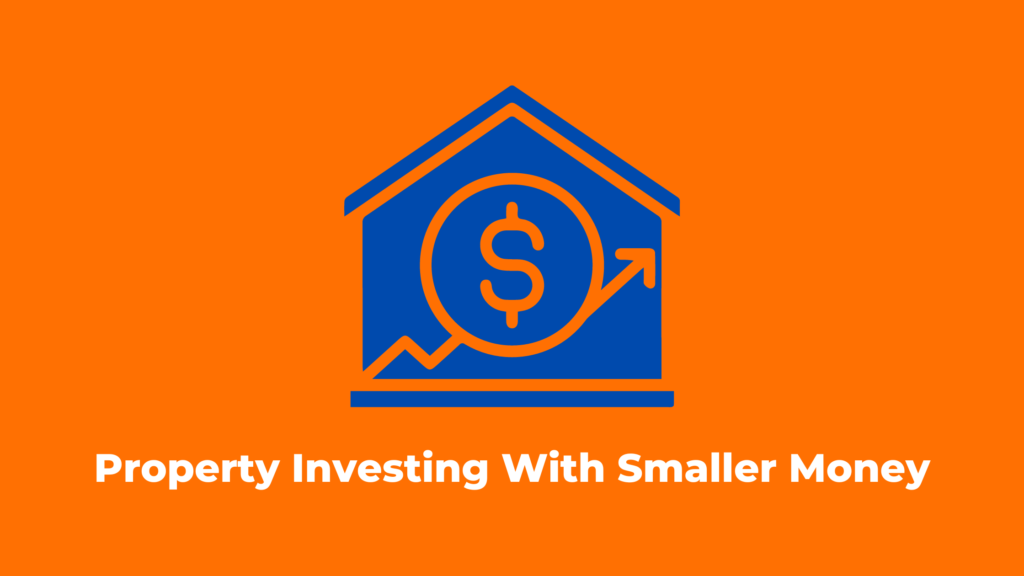The path to wealth often has many twists and turns, especially in real estate investment, with no map to guide you. However, there are steps you can take to set yourself up for success and get on the right track. Read more below to know how to succeed as a real estate investor.
What is Real Estate Investment?
Before becoming a successful real estate investor, you must understand what real estate investment means. Real estate investment is purchasing, owning, managing, and selling properties for profit. Investors can profit from real estate by renting out the property, increasing its value, or selling it for a profit.
Investing in real estate may seem simple. However, you may have to think of several considerations to avoid making long-term mistakes. If you’re considering investing in real estate, read the next section for tips on how to do it successfully.
10 Steps on How to be a First-time Real Estate Investor
Real estate investing can be intimidating, especially for beginners. Here are eight critical steps that experts recommend for first-time real estate investors.
1. Do your research
Before investing in real estate, it is critical to conduct extensive research. Investigate the economic and demographic trends of your potential investment area to understand how the market will perform in the future.
Before you start investing in real estate, it is also essential to educate yourself on the different aspects of the industry. This includes learning about the local real estate market, financing options, property management, and tax implications.
You can attend seminars and workshops, read books, and follow real estate blogs and podcasts to stay up-to-date on the latest trends and best practices. You should also consider working with a mentor or coach who has experience in real estate investing and can provide guidance and support.
You can also avoid future legal troubles and fines by being aware of fundamental rights like lease obligations, security deposit policies, and eviction notices.
2. Create a budget (and stick to it!)
Aside from saving money for the purchase, consider the costs of running and managing the property. Identify how much you can afford to invest and account for all property costs, such as maintenance, repairs, and property taxes. Doing so can help you prepare a budget accordingly.
Creating a budget that accounts for all potential fees can help you avoid miscalculations on your first investment. Make sure to set aside an emergency fund as well. This way, you can maintain a positive cash flow regardless of the circumstances.
3. Identify the type of real estate to invest in
The location is a crucial factor distinguishing an excellent real estate investment from a bad one. As a first-time investor, you should investigate several sites before settling on one.
Here are a few examples of popular real estate investments:
- Residential rental properties – Single-family homes or multi-unit buildings can generate consistent rental income while potentially appreciating property value over time.
- Commercial properties – Those seeking higher rental income and longer-term tenants may benefit from investing in retail spaces, office buildings, or industrial properties.
- Vacation properties – Beach houses can provide rental income and be a good option for those looking for accommodations.
- Development projects – A successful development project can provide a significant return on investment, such as converting a commercial space into a residential unit.
- Real Estate Investment Trusts (REITs) – This type allows investors to put money into a diverse portfolio of real estate properties without the hassle of ownership responsibilities. They can provide a consistent stream of income through dividends. They can also be an excellent way to gain exposure to various properties and markets.
4. Know the difference between saving and investing
Savings and investments are ways of setting aside money for the future, but they differ fundamentally. Savings is for short-term goals such as an emergency fund or a down payment on a home. On the other hand, investing can help you achieve long-term goals like retirement or wealth accumulation over time.
Another significant distinction between saving and investing is the level of risk involved. Savings accounts and other cash investments generally have low risk with low returns. In contrast, investing entails assuming more risk in exchange for the possibility of higher returns.
Moreover, savings and other cash investments are highly liquid. Meanwhile, the stock market and other real estate investments can be more illiquid and take longer to sell.
5. Learn real estate or investing terms
Understanding real estate terms can help you communicate effectively with agents, lenders, and other industry professionals. Familiarizing yourself can help you evaluate properties and understand their features and potential risks. Here are some real estate jargons that can help you out:
- Appraisal is the process of determining the value of a property.
- Closing costs include legal fees, title insurance, and property taxes from buying or selling a home.
- Equity is the difference between a property’s value and the amount still owed on any mortgages or loans secured.
- Zoning is a local government land use regulation governing what types of structures owners can build on a property.
- Cap rate is a ratio that compares a property’s net income to its purchase price. Many frequently use this metric to determine a real estate’s potential return on investment.
- Cash flow is the difference between a property’s income and the costs of owning and operating it.
- Rent value ratio (RTV) is the ratio of potential rental income to property value.
6. Use Financial Tools
As a first-time real estate investor, you can use tools to manage your finances and assess whether a property is worth investing in.
Some financial tools that can help you manage your investments include the following.
- Rent vs. Buy Calculators
This tool can help you compare the costs of renting and buying a home. They consider mortgage payments, property taxes, insurance, and maintenance costs to help you decide which option is more financially feasible.
- Return On Investment (ROI) Calculators
This calculator can assist you in identifying the potential return on your real estate investment. It accounts for rental income, property appreciation, and tax benefits.
- Cash Flow Analysis Tools
Analyze quickly using this tool to help evaluate if the property brings in more money than it costs.
- Capitalization Rate (Cap Rate)
The cap rate is a financial metric that can help you compare the possible return on various investment properties.
- Tax Calculators
Use this calculator to know the potential tax implications of your real estate investment, such as mortgage interest and depreciation deductions.
- Investment Property Analyzers
This tool lets you easily determine the potential performance of a rental property by calculating cash flow, ROI, and other vital metrics.
7. Seek Advice from Other Investors
Other investors can offer valuable insights and perspectives based on their market experiences. They can share their successes, challenges, and useful investment lessons.
Getting advice from other investors can also be an excellent way to network and build relationships in the industry. A diverse group of investors can help you see the market from various perspectives. This way, you open your mind to a broader range of investment strategies and opportunities.
Some common habits that many successful real estate investors include:
- Setting specific financial goals and identifying the types of properties and strategies that will help achieve them
- Constantly educating themselves by reading industry publications and attending real estate conferences
- Seeking out mentors and other experienced investors to learn from
- Networking and forming relationships with other industry professionals, such as real estate agents, lenders, and contractors.
- Sticking to their plans without being swayed by short-term market fluctuations or emotional decisions
- Taking calculated risks and being proactive in conducting due diligence to weigh potential risks and rewards
- Adapting to the volatile real estate market and changing circumstances to help them pivot their strategies as needed
8. Pay attention to successful investors
Successful investors have certainly made many mistakes. However, they took these stumbling blocks as an opportunity to learn. How they have adapted can help you learn from their mistakes and avoid making them yourself.
Successful investors thoroughly understand the real estate market and the factors influencing value. Their knowledge and expertise can help you identify potential mentors or partners who can assist you in growing your portfolio. What they do can inspire you to invest and identify opportunities you may not have considered otherwise.
9. Build a Strong Network
Real estate investing is a team sport, and building a strong network is essential for success. You should surround yourself with a team of experts, including real estate agents, property managers, contractors, and attorneys. They can provide valuable insights and support that can help you navigate the challenges of the industry. You should also consider joining a local real estate investing group or association to meet other investors and learn from their experiences.
10. Conduct Thorough Due Diligence
Before you invest in any property, it is important to conduct thorough due diligence. This includes researching the local real estate market, evaluating the property’s condition and potential, and reviewing the financials. You should also consider working with a qualified home inspector to identify any potential issues with the property. By conducting thorough due diligence, you can minimize your risk and ensure that you are making an informed investment decision.
Invest in Real-Estate Today
When you invest in real estate, you can put your money to work today and have more tomorrow. However, remember to take note of some considerations. Your investment return must cover your risk-taking costs, tax obligations, and other costs of dealing with real estate investment.
A solid understanding of real estate investment can help you organize your to-do list for investing in a property. Hopefully, this guide will help you avoid long-term mistakes and reach your goal of becoming a successful real estate investor!

Pardeep is the founder and editor of Small Investment Ideas. He believes that everyone can change their life with the help of small investments and achieve financial freedom.


